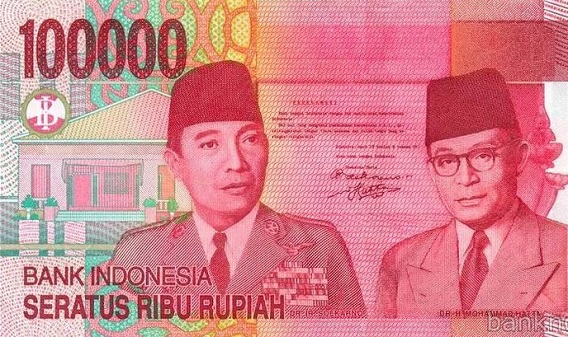Currency Update: Why Indonesia’s Rupiah Touches a 17-Year Low
The Indonesian rupiah touched a 17-year low as the currency continued to depreciate amid persistent bullish US dollar momentum. The rupiah weakened to IDR 13,539 per US dollar according to the Bloomberg Dollar Index on Friday (31/07). The US Commerce Department announced on Thursday (30/07) that US gross domestic product (GDP) expanded at 2.3 percent (year-on-year) in the second quarter of 2015, giving rise to heightened expectation that the US Federal Reserve will raise its key interest rate soon.
US economic growth accelerated in Q2-2015 primarily due to a pick-up in consumer spending. Moreover, US GDP growth in the first quarter, previously reported to have contracted 0.2 percent (y/y), was revised up to +0.6 percent (y/y). Earlier this week, the Federal Reserve indicated that it detects a moderately accelerating economy as the labor market and housing have improved. As such, an interest rate hike later this year is highly likely. Such a hike is expected to result in capital outflows from emerging economies, including Indonesia.
Next week other key US macroeconomic data are set to be released (for example non-farm payrolls). If these results are positive, then there will emerge even more pressure on the Indonesian rupiah.

Bank Indonesia Governor Agus Martowardojo added that US dollar demand in Indonesia has been high ahead of the month-end due to companies’ debt payment obligations. This adds more depreciating pressure on the Indonesian rupiah. Due to the weak rupiah, Bank Indonesia is expected to maintain its key interest rate (BI rate) at 7.50 percent at the next policy meeting (18 August 2015) as a lower rate would narrow the interest differential with the US hence undermine Indonesia’s appeal to foreign investors.
Bank Indonesia's benchmark rupiah rate (Jakarta Interbank Spot Dollar Rate, abbreviated JISDOR) depreciated 0.10 percent to IDR 13,481 per US dollar on Friday (31/07).
Indonesian Rupiah versus US Dollar (JISDOR):
| Source: Bank IndonesiaThe weak performance of the rupiah on today’s trading day was in stark contrast to the performance of Indonesian stocks. Indonesia’s benchmark stock index (Jakarta Composite Index) climbed 1.91 percent to 4,802.55 points. Despite posting weak Q2-2015 corporate earnings, shares of Unilever Indonesia, Astra International, Telekomunikasi Indonesia and Bank Central Asia rose steeply. This paradoxical situation is caused by a technical rebound according to analysts as these blue chip stocks have generally been weakening during the second quarter of the year. Before Indonesian Q2-2015 corporate earnings started to be released many investors dumped Indonesian assets but today they started to collect the stocks again as these still have high potential toward the future. Especially consumer goods stocks were collected.
Next Monday, Statistics Indonesia will release the official July inflation figure. Due to weakened purchasing power it is expected that annual inflation will ease.
